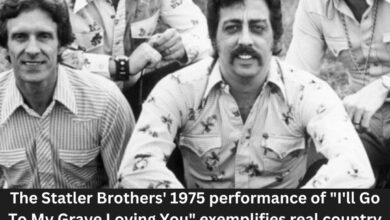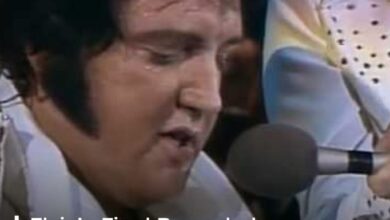The Allure of Patsy Cline Glows in “Crazy”
“Crazy” is an iconic country ballad that has captured the hearts of listeners for decades. Written by the legendary Willie Nelson, the song was crafted during a fruitful period in which Nelson was both establishing himself as a prominent songwriter and navigating his own artistic journey. Although Nelson originally penned the song for himself, it was Patsy Cline’s 1961 rendition that propelled “Crazy” into the musical canon, solidifying both her legacy and the song’s lasting influence.
The lyrics paint a poignant picture of unrequited love, focusing on the heartache experienced by someone who remains emotionally attached to a partner who has moved on. The depth of despair and longing comes through vividly in lines that articulate the struggle between wanting to let go and desperately clutching to memories. This theme resonates with a wide audience, transcending time and making it relatable for anyone who has faced similar romantic turmoil. Its universal appeal is a significant reason why “Crazy” continues to be celebrated and interpreted by artists across different musical backgrounds.
Patsy Cline’s interpretation of “Crazy” is nothing short of masterful. Her vocal delivery combines raw emotionality with technical skill, allowing her to express both vulnerability and strength simultaneously. The arrangement of the song complements Cline’s voice beautifully, featuring rich orchestration that enhances the sorrowful mood. The lush strings and the gentle piano create an atmosphere that feels both intimate and expansive, drawing the listener into the inner world of the song’s narrator. In this way, Cline transformed “Crazy” from mere lyrics into a living, breathing expression of heartache.
Initially, however, “Crazy” faced challenges in the music industry. Many executives were skeptical about its commercial potential, leading to a delay in its release. Cline’s determination, along with the vision of her producer, ultimately led to the song becoming a key part of her career. After its release, “Crazy” topped the country charts and also crossed over to pop, further cementing Cline’s status as a versatile and influential artist in American music.
The tragic end of Patsy Cline’s life in 1963, due to a plane crash, adds a layer of poignancy to “Crazy.” Cline was only 30 years old at the time, and her untimely death shocked the music world. Although she did not live to witness the complete impact of her music, Cline’s recordings have endured, influencing countless singers and songwriters. In the subsequent years, “Crazy” became more than just a hit; it is now a cornerstone of Cline’s legacy.
Willie Nelson later released his own version of “Crazy,” and his interpretation further showcased the song’s versatility. While Nelson’s style tends to lean towards a more laid-back, conversational delivery, he infused the song with his signature sound, illustrating how “Crazy” could inhabit different artistic expressions while retaining its core emotional resonance. The fact that both artists achieved significant success with the same song underlines the strength of its composition.
Over the years, “Crazy” has attracted a plethora of covers from a variety of artists across different genres, including pop, rock, and jazz. Notable renditions by artists such as Linda Ronstadt and Diana Krall highlight the song’s adaptability and the range of emotions it can convey. Each artist who takes on “Crazy” brings their own interpretation, yet they all acknowledge the emotional weight the song carries. This phenomenon speaks to the timeless quality of the songwriting.
The song continues to be featured in modern media and remains a popular choice for films, television shows, and tributes. Its presence in contemporary culture ensures that new generations of listeners discover its beauty. Furthermore, “Crazy” has become a staple in the repertoire of aspiring singers and seasoned performers alike, often showcasing their vocal abilities and emotional depth.
In addition to its artistic legacy, “Crazy” also holds a significant place in the history of country music as a testament to the genre’s storytelling prowess. The song exemplifies how country music can explore complex human emotions with sincerity and depth. As a result, “Crazy” remains an essential part of the country music canon, symbolizing both heartache and the enduring power of love.
As time goes on, the song “Crazy” has woven itself into the fabric of American music. It encapsulates a moment of vulnerability that resonates with listeners from various backgrounds. Its message of love, loss, and the ache of reminiscence highlights a shared human experience. In the end, “Crazy” is not just a song; it is a powerful narrative that continues to speak to the heart, bridging the gap between past and present and ensuring its place in the annals of musical history.





